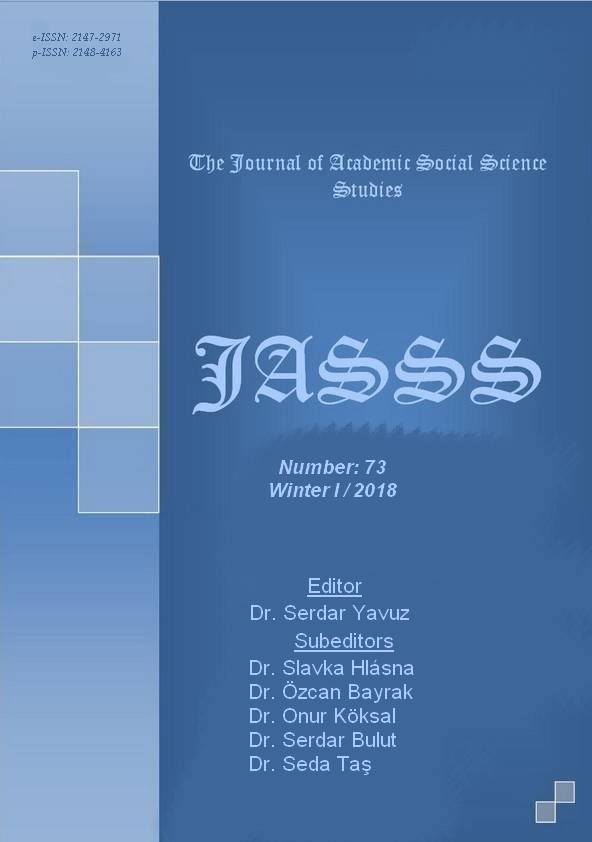MATEMATİK ÖĞRETMEN ADAYLARININ, MATEMATİK ÖĞRETMENLERİNİN VE AKADEMİSYENİN İSPAT BECERİLERİNİN İNCELENMESİ
Author :
Abstract
İspat, matematiksel düşünmenin alt boyutlarından biri olmakla birlikte matematik yapabilmenin temel bileşenidir. Buna paralel olarak ispat yapabilme de matematik eğitimindeki çalışmaların odağı halindedir. Bu önemine rağmen yapılan birçok çalışma öğrencilerin, öğretmen adaylarının zorlandıklarını göstermiştir. Öğrencilerin ispat becerisini geliştirmekte en önemli görev öğretmenlere düşmektedir. Bu nedenle öğretmenlerin, öğretmen adaylarının ve öğretmen adaylarına kılavuzluk eden akademisyenlerin ispat yapma süreçleri önemlidir. Bundan dolayı bu çalışmanın amacı matematik öğretmeni adaylarının, matematik öğretmenlerinin ve akademisyenin ispat becerilerini incelemek karşılaştırmalar yapmaktır. Araştırmanın katılımcıları, ortaöğretim matematik öğretmenliği son sınıftaki 2 öğretmen adayı, Anadolu lisesinde 2 matematik öğretmeni ve Eğitim fakültesinde matematik alan derslerine giren Akademisyen (araştırma görevlisi) olmak üzere toplam 5 kişiden oluşmaktadır. Çalışma nitel araştırma yaklaşımlarından durum çalışması ile yapılmıştır. Veriler görüşme yapılarak toplanmıştır. Katılımcılardan ?8 irrasyonel olduğunu ve 1’den n’ye kadar sayıların toplamını ispat etmeleri istenmiştir. Elde edilen tüm veriler bilgisayar ortamına aktarılmış ispat sürecindeki davranışları düşünme süreçleri karşılaştırılmıştır. Elde edilen bulgular lisansüstü eğitim alan öğretmen ve akademisyenin verilen ilk ifadenin ispatını hem kısa sürede yaptıklarını hem de ispatı nasıl yapabilecekleri ile ilgili farkındalıklarının yüksek olduğunu göstermiştir. Diğer katılımcılar ise sevmediklerini ya da ezberlediklerini ifade ederek ispatı yapamadıkları görülmüştür. Aynı şekilde ikinci ifadenin ispatında da akademisyen ve lisansüstü eğitim alan öğretmen tümevarım ile ispat ederken diğer katılımcılar benzer ispat etmişlerdir.
Keywords
Abstract
Along with proof is one of the sub-dimensions of mathematical thinking; it is the main component of making mathematics. In parallel, proving is also the focus of studies in mathematics education. Despite this importance, the findings of many studies reveal that students and preservice teachers have difficulties related to proving. The most important task falls to teachers in developing students' proving skill. Thus, the proving process of teachers, preservice teachers’ and academicians’ who guided the preservice teachers is important. Therefore, the aim of this study is to examine and to make comparisons with proving skills of preservice mathematics teachers, mathematics teachers and academician. The participants of the study consist of 5 people; whom of 2 preservice teachers in the last year of secondary mathematics education, 2 mathematics teachers in Anatolian high school and an academician (research assistant) in the field of mathematics at Faculty of Education. This study is used case study from qualitative research approaches. The data were collected through interviews. The participants were asked to prove that?8 is irrational and the sum of the numbers from 1 to n. All data were transferred to the computer environment; their behaviour and thinking processes were compared. Findings show that teachers and academician who receive postgraduate education are providing in short time in the proof of the first statement and aware of how they can make proving. It has seen that other participants could not prove since they did not like or memorize. Similarly, in the proof of the second statement, while academician and teachers who received postgraduate education have proved by induction; the other participants have made similar proof.





